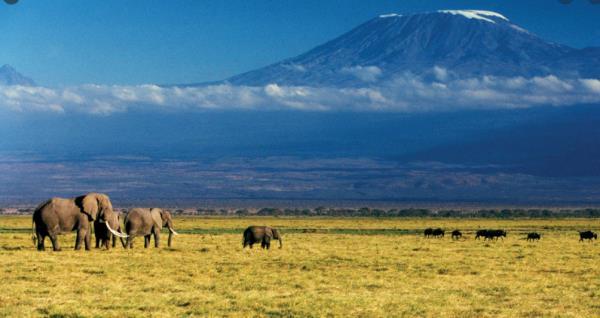In Kenya avocado cultivation threatens wildlife, especially elephants
Kenya
Thursday 25 March 2021
FJ
Tourism sector or agricultural sector? A difficult choice for Kenya. In Amboseli Park, elephants near Mount Kilimanjaro which is the highest peak on the African continent (Photo: andbeyond.com).
An avocado production project near a large national park would prevent elephants from moving and would reduce their populations, according to local conservationists.
Near Amboseli National Park, home to around 2,000 elephants, the agricultural company KiliAvo Fresh Ltd owns around 100 hectares of land. The company is preparing new avocado plantations, and says it received government approval in mid-2020 for the work. But NEMA (National Environment Management Agency) has suspended this authorization and wants to examine the case while the company KiliAvo challenges this decision in court.
Many environmental organizations have alerted public opinion. Stating that the cultivation of avocados will require the installation of an electric fence which will block the movements of elephants and other wild animals which move between Amboseli and other neighboring national parks. Blocking the movement of elephants in this 'sanctuary' region could quickly lead to a reduction in their numbers, the organizations warned.
Kenya faces a dilemma. Support the point of view of environmental organizations and protect the elephants which attract tourists from all over the world. Or support an agricultural project that would be beneficial to the local economy.
Tourism brought in around $1.6 billion in 2019. With its ideal conditions for growing avocados, the country recorded export earnings exceeding $127 million, for the period January to October 2020.
source : reuters.com, africanews.com





